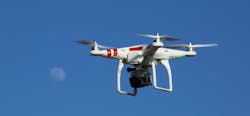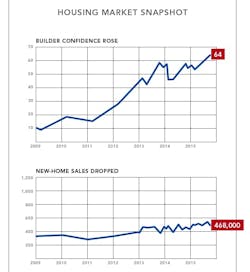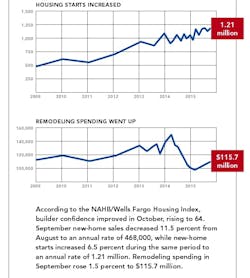A growing number of home builders and land developers are using unmanned aerial vehicles, more commonly known as drones, as a tool in their marketing efforts and site assessments.
Anyone can fly a drone as long as it’s for recreational purposes and meets certain Federal Aviation Administration (FAA) restrictions. But, until recently, very few drones could legally be flown for commercial purposes.
At the start of 2015, only eight companies had been granted FAA exemptions (referred to as Section 333) to allow an operator to fly a drone commercially in low-risk, controlled environments. During the last 10 months, that number has grown to more than 2,100 companies and individuals.
This sudden growth is evidence that business leaders are realizing that these aren’t just toys; they have many commercial applications. Drones could be useful for builders seeking an edge on competition, land developers wanting to save time during site surveys, and inspectors examining hard-to-reach areas. Getting an aerial view of a building or development is now easier and cheaper.
Most of the images captured by the drones are used for marketing purposes of finished homes. Others are used for information gathering on spec homes to determine elevations and to provide additional perspectives of potential designs.
Builders should first determine what, if any, value drone use would add to their business. Justin Dodge, development coordinator for Hunziker Land Development, in Ames, Iowa, says that there are many intangible benefits. “Yes, there is a novelty there, but it also helps build on the perception our clients have that we’re always on the cutting edge,” says Dodge, who has been commercially operating Hunziker’s drone since May. “It says we’re not living in the past; we’re thinking about tomorrow. And that’s how we build—always looking to create a better and more efficient product.”
Dodge says it used to take him 30 to 45 minutes to walk an entire subdivision that’s under construction. Using a drone, he can fly the entire site in just 10 minutes.
In coming years the impact that drones have on the building industry is likely to increase significantly. PB
ABOUT NAHB: The National Association of Home Builders is a Washington, D.C.-based trade association representing more than 140,000 members involved in remodeling, home building, multifamily construction, property management, subcontracting, design, housing finance, building product manufacturing, and other aspects of residential and light commercial construction. For more, visit nahb.org.


